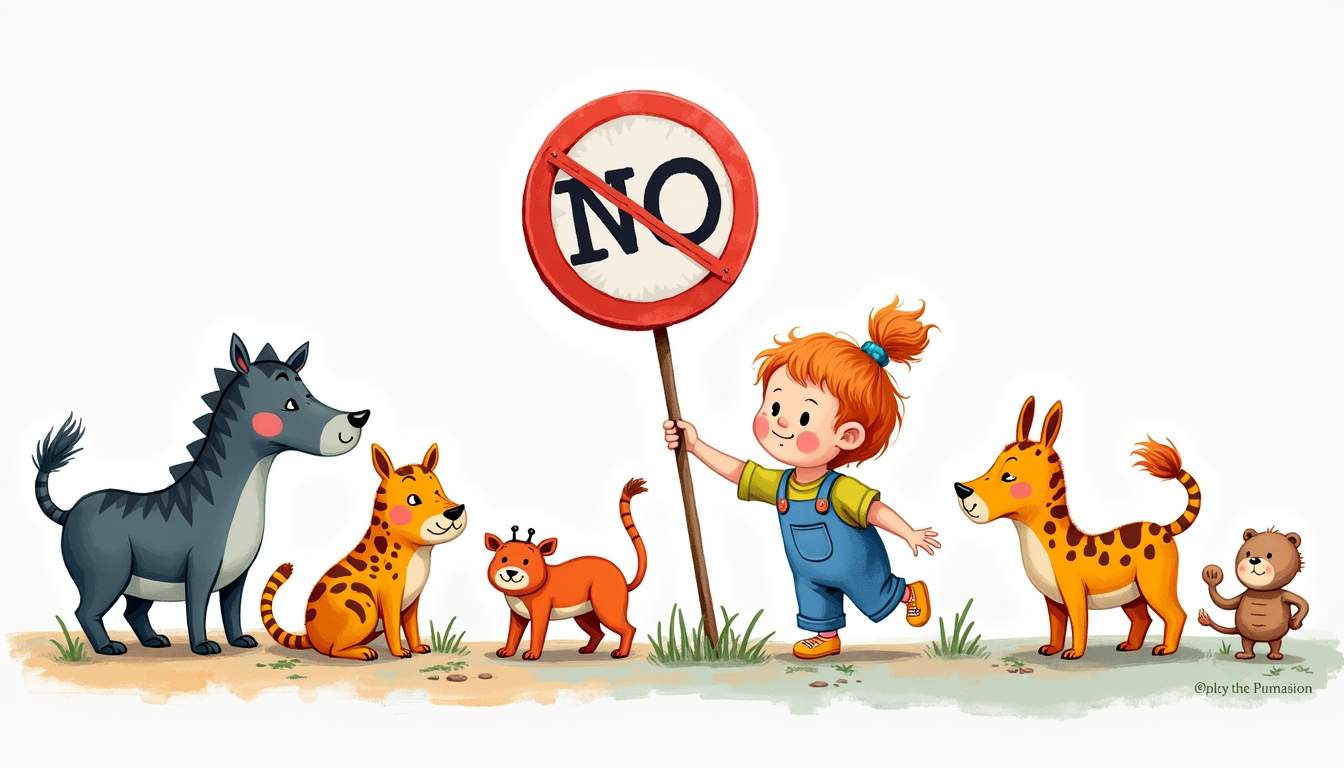The emotional growth of toddlers plays a crucial role in their overall development and well-being. As parents and caregivers, understanding how to support and nurture these early emotional experiences is vital. This article explores the significance of emotional growth in toddlers, along with effective strategies and insights for fostering emotional well-being.
Understanding the Importance of Emotional Growth in Toddlers
The emotional development of toddlers is not just an aspect of their early years; it is foundational for their future social interactions and mental health. Emotional growth helps toddlers learn how to express their feelings appropriately and navigate their environment. It sets the stage for healthy emotional regulation and resilience later in life.

The Role of Emotional Growth in Overall Development
Emotional growth influences several areas of development, including cognitive, physical, and social skills. Children who develop emotional intelligence can form stronger interpersonal relationships, excel academically, and handle life’s challenges with greater ease. By fostering emotional growth, parents are also equipping their children with essential life skills.
Key Emotional Milestones for Toddlers
During their early years, toddlers experience significant emotional milestones. These may include:
- Displaying various emotions: From happiness to frustration, toddlers begin to identify and communicate their feelings.
- Developing empathy: Around age two, many children start showing signs of empathy, such as reacting to the distress of others.
- Understanding social cues: As they interact with peers and adults, toddlers learn to interpret the emotions of others.
Supporting children through these milestones helps ensure a healthy emotional trajectory. Parents and caregivers can play a pivotal role by modeling emotional expression and providing a safe space for children to explore their feelings. Engaging in activities that encourage emotional dialogue, such as reading books that depict various emotions or playing games that involve role-playing, can significantly enhance a toddler’s ability to articulate their feelings. Furthermore, consistent routines and predictable environments contribute to a sense of security, allowing toddlers to express their emotions more freely.
Additionally, the role of play cannot be overstated in fostering emotional growth. Through imaginative play, toddlers can act out different scenarios, which helps them process their emotions and understand the feelings of others. This type of play not only enhances their emotional vocabulary but also strengthens their problem-solving skills as they navigate social interactions with peers. Encouraging cooperative play, where toddlers must share and negotiate, further cultivates their ability to empathize and manage their emotions in group settings.
Strategies for Supporting Emotional Growth
Implementing strategies to support emotional growth can significantly benefit toddlers. Here are some effective approaches that parents can integrate into daily routines.
Encouraging Emotional Expression in Toddlers
It is essential for toddlers to express their emotions freely. Allowing them to verbalize what they feel helps them process their thoughts. Parents can encourage expression by:
- Modeling emotional language: Share your feelings openly and clearly, helping them identify different emotions.
- Using books and stories: Reading age-appropriate books that explore emotions can enhance their understanding.
- Creating an open dialogue: Foster an environment where asking questions about feelings is encouraged.
Such actions not only validate their emotions but also teach them how to articulate their needs effectively. Additionally, incorporating art and creative activities can serve as a powerful outlet for emotional expression. Providing toddlers with crayons, paints, or playdough allows them to express feelings that they may not yet have the words for. This creative process can lead to discussions about what they are creating, giving parents further insight into their child’s emotional state.
Promoting Empathy and Understanding in Toddlers
Helping toddlers develop empathy can significantly shape their interactions with others. Empathetic children learn to care for peers and understand diverse perspectives. Strategies to promote empathy include:
- Role-playing: Engage in role-playing scenarios that require taking on another’s perspective.
- Discussing feelings: Talk about how characters in stories might feel in various situations to foster a sense of understanding.
- Encouraging sharing: Promote sharing and cooperative play, which build the foundation for empathetic behavior.
As toddlers practice empathy, they become more aware of the emotions of others, helping to strengthen their social skills. Furthermore, introducing them to diverse cultures and experiences can broaden their understanding of different perspectives. Activities such as visiting community events, watching films that showcase various lifestyles, or even inviting friends from different backgrounds to play can enrich their emotional intelligence. By exposing toddlers to a variety of experiences, parents can help them appreciate the richness of human emotions and the importance of compassion in building relationships.
Nurturing a Positive Emotional Environment at Home
Creating a nurturing environment is fundamental to supporting a toddler’s emotional growth. A positive emotional climate contributes to a child’s sense of security and well-being. Here’s how to achieve this.

The Impact of a Positive Emotional Environment
A supportive home environment affects a toddler’s emotional development profoundly. When children feel safe and accepted, they are more willing to explore the world around them and express their feelings. In a nurturing space, emotions like joy, sadness, or frustration can be safely explored without fear of judgment. This emotional safety encourages toddlers to develop resilience, enabling them to cope with challenges and setbacks as they grow. Moreover, a positive emotional environment can enhance cognitive development, as children who feel secure are more likely to engage in creative play and problem-solving activities.
Tips for Creating an Emotionally Supportive Home
To cultivate a positive emotional environment, parents can consider the following tips:
- Establish routines: Routines can create a sense of stability and predictability.
- Praise positive behaviors: Acknowledge and reinforce desirable behaviors to encourage emotional growth.
- Be present: Spend quality time with your child, actively listening and engaging in their world.
In addition to these strategies, it is essential to model emotional intelligence. Parents can share their feelings openly, demonstrating how to express emotions in healthy ways. For instance, when faced with frustration, a parent might say, “I feel a bit upset right now, but I know we can work through it together.” This not only normalizes emotional expression but also teaches toddlers how to articulate their own feelings. Furthermore, incorporating activities such as storytelling or role-playing can provide children with opportunities to navigate various emotions in a safe and controlled setting, further enriching their emotional vocabulary.
Such an environment will foster secure attachments and help toddlers thrive emotionally. By actively engaging in their emotional development, parents lay the groundwork for their children to build strong relationships and develop empathy as they grow older. The emotional skills learned in these formative years will serve as a foundation for future interactions, helping children navigate the complexities of social dynamics and personal relationships throughout their lives.
Dealing with Emotional Challenges in Toddlers
While emotional growth is a natural process, toddlers may face emotional challenges. Recognizing and addressing these challenges proactively is crucial for their development.

Common Emotional Challenges in Toddlers
Toddlers may experience various challenges, including:
- Separation anxiety: Many toddlers struggle with being apart from their caregivers.
- Frustration: At this age, many children may feel frustrated when they cannot express themselves or achieve a goal.
- Emotional outbursts: Tantrums can arise as toddlers grapple with intense feelings they cannot fully understand.
Understanding these challenges is key to supporting toddlers effectively.
Effective Ways to Handle Emotional Outbursts
When facing emotional outbursts, parents can adopt several strategies:
- Stay calm: Responding calmly can help de-escalate the situation and model emotional regulation.
- Validate their feelings: Acknowledge what your child is feeling to ensure they feel heard.
- Redirect their focus: Offer distractions or engage them in a different activity to shift their emotional state.
Effective handling of emotional challenges equips toddlers with skills for greater emotional resilience.
The Role of Play in Emotional Development
Play is a vital component of emotional development. It allows toddlers to explore their feelings, practice social skills, and develop problem-solving abilities.
How Play Encourages Emotional Growth
During play, children often express their emotions naturally. They may act out scenarios that reflect their experiences, allowing them to process feelings in a safe and engaging way. Playtime serves as a rich opportunity for social interaction, helping toddlers learn empathy and cooperation with peers.
Choosing Emotionally Stimulating Toys and Activities
Choosing the right toys and activities can significantly enhance emotional development. Parents should consider:
- Interactive toys: Look for toys that promote engagement, like puppets and dolls that encourage role-play.
- Creative arts and crafts: Activities that require creativity can help toddlers express their feelings.
- Outdoor play: Engaging in physical activities supports both emotional regulation and overall health.
By thoughtfully selecting play options, parents can promote emotional exploration and growth within their toddlers.
In conclusion, supporting your toddler’s emotional growth is vital for their overall development. By understanding the importance of emotional growth, using effective strategies, nurturing a positive environment, and leveraging play, parents can lay a strong foundation for their child’s emotional well-being. This investment in emotional health pays off in the form of resilient, empathetic, and well-adjusted children.











